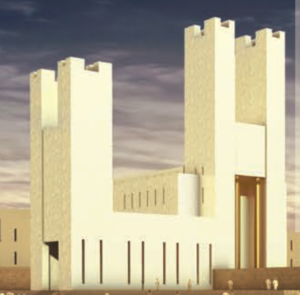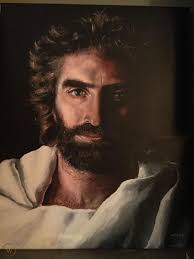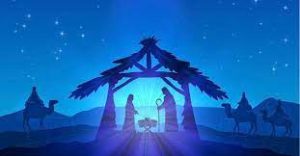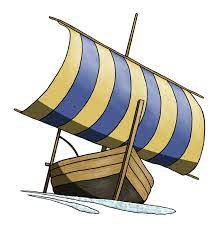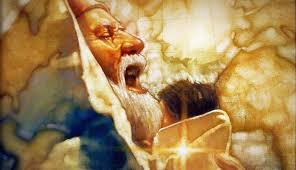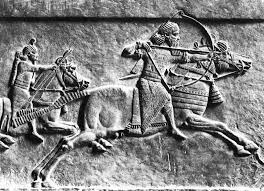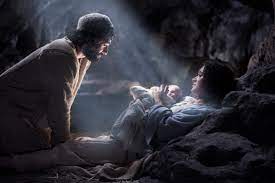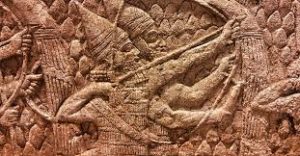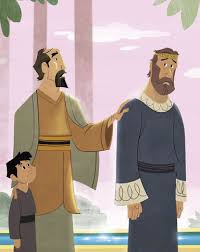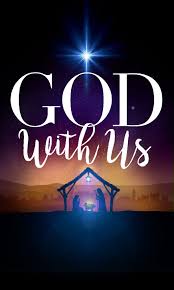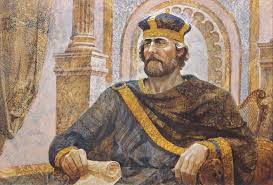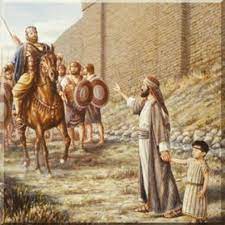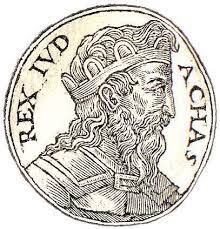Cp – The LORD’s Anger Against Isra’el 9:8 to 10:4
The LORD’s Anger Against Isra’el
9:8 to 10:4
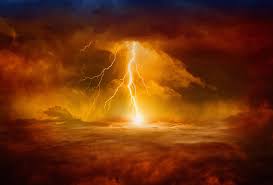
There are three more sections left in the book of Immanuel. Isaiah himself set the stage for the remaining three sections back in Chapter 8 verse 18. Here am I, and the children the LORD has given me. We are signs and symbols in Isra’el from ADONAI-Tzva’ot, who dwells on Mount Zion (8:18). His name and the names of his sons were signs and symbols to Judah. In this section (9:8 to 10:4) the prophet develops the theme: Quick to plunder, swift to the spoil. That is the name of his son Maher-Shalal-Hash-Baz. In this second section (10:5 to 34) he develops the theme: A remnant will return. That is the name of his son Shear-Jashub. In the third section (11:1 to 12:6) he develops the theme: The LORD is salvation, which is the name of Isaiah.
Before we look at this, go back to 2:9, which reads: So man will be brought low and mankind humbled – do not forgive them. Remember in the first five chapters, Isaiah began to develop points that he intended to expand on later. Therefore, this section, 9:8 to 10:4, is an expansion of 2:9.
In this section Isaiah describes Isra’el being brought low and being humbled by the use of a four-stanza poem. It details the dreadful consequences of spiritual adultery that the northern kingdom would succumb to. All four stanzas end with the phrase: yet for all this, His anger is not turned away, his hand is still upraised. To see the link click the first stanza Cq – The LORD Has Sent a Message Against Jacob (9:8-12); the second stanza is Cr – The LORD Will Cut Off the Head and the Tail (9:13-17); the third stanza is Cs – Manasseh Will Feed On Ephraim (9:18-21); and the final stanza is Ct – Woe To Those Who Make Unjust Laws (10:4). Earlier we were told that a great light, of 9:2, would not come until darkness had reached its greatest point. This section, then, deals with the increase of that darkness.
When we think of Ha’Shem’s anger we must avoid two pitfalls. First, we must avoid thinking, “Oh, that’s just an old fashioned misunderstanding of things.” We know better; Jesus is really a God of love.” This is dangerous because both the TaNaKh and the B’rit Chadashah are equally inspired and both display ADONAI’s love and anger. Yeshua Messiah Himself became terribly angry on several occasions (Luke 11:37-54, Luke 12:4-5; John 2:13-22). In fact, love and anger are two sides of the same coin.
Secondly, we must avoid thinking that whenever we suffer, YHVH must be angry with us. If a drunk driver swerves onto the sidewalk and kills my child, that is not a sign God is angry with me. Finally, we should also avoid the idea that the anger of the LORD in the Bible is simply a metaphor for the bad things that happen to us in our lives. Take gravity, for example. Falling is just the way things are. The ground is not angry with you if you step out of a twenty-third story window and fall to the ground. There is a difference between God’s love and His anger. He is love, and He gets angry. That is, love is a part of His being. Thus, He is not some tyrant with a hair-trigger temper. The one consistent description of ADONAI in the TaNaKh is that He is compassionate, gracious and slow to anger (Exodus 34:6; Numbers 14:18; Nehemiah 9:17; Psalm 86:15, etc). At the same time, He cares as much about what we do with our lives as any loving father.
So, does God get angry? Yes He does, but it is not the selfish anger of a sinful human. Nor is it the temper tantrum of an overbearing heavenly monarch who will not permit His lowly subjects to do what they want. It is the heartbroken response of an Artist who watches His creations doing things that are not only a violation of His original dream, but are a violation of their very natures.35



